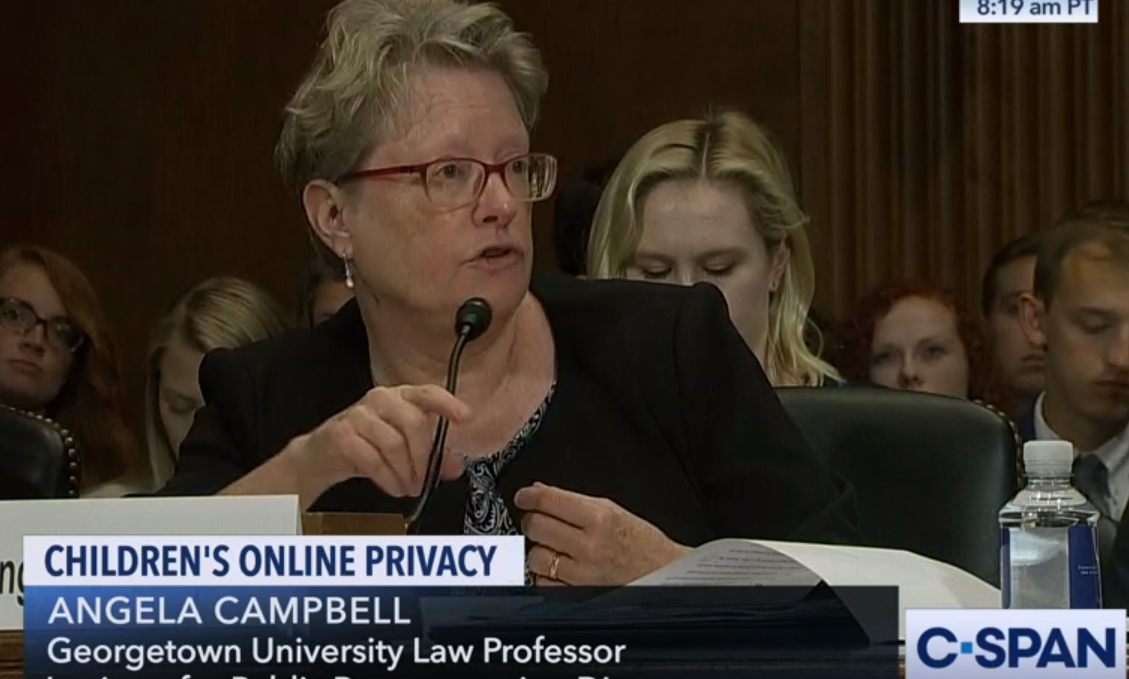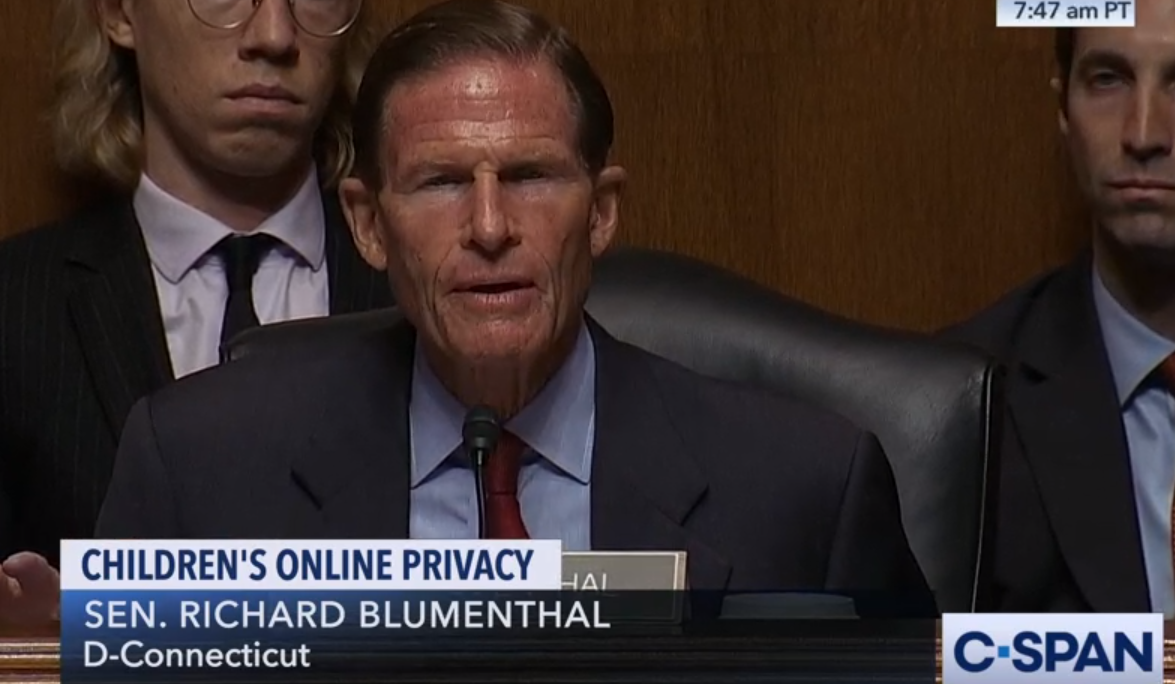Big Tech Bashed in Senate Hearing On Protecting Kids Online
The smarter way to stay on top of the multichannel video marketplace. Sign up below.
You are now subscribed
Your newsletter sign-up was successful
The Senate Judiciary Committee held a hearing Tuesday (July 9) on protecting kids online, and Big Tech came in for further criticism over its handling of the issue.
Lindsey Graham (R-S.C.) said he hoped to learn a lot about the perils of social media sites and the internet in general" for children from the witnesses, a mix of academics and children's online health advocates. He also signaled there would be a follow-on hearing where Big Tech was called to account.
Related: Hawley Bill Targets YouTube Algorithm
Professor Angela Campbell of the Institute For Public Representation at Georgetown Law, did her best not to disappoint Graham as she outlined the perils the groups she represents has targeted.
She has been on the front lines of child protection issues for three decades, representing the Center for Digital Democracy and the Campaign for a Commercial-Free Childhood in their efforts to protect children and their online information.

She told the committee that problems with protecting children's privacy, preventing exposure to inappropriate content and limiting screen time on digital "vices" stem from two things: 1) The business models of the dominant tech companies, which have not been designed to protect children, but to attract users and keep them so they can monetize their data via targeted marketing; and the fact that the government does not have sufficient safeguards and has not enforced the ones it has.
Related: POTUS Says Justice Might Have to Act Against Edge
The smarter way to stay on top of the multichannel video marketplace. Sign up below.
She called out the Federal Trade Commission for not vigorously enforcing the Children's Online Privacy Protection Act (COPPA), which she said has empowered Google, YouTube, Facebook and Amazon to "ignore existing safeguards."
She pointed out that when COPPA was adopted there were no interconnected toys or social media sites and that COPPA is not up to the task of tackling those. She also put in a plug for upping the COPPA protections to children over 13, which COPPA co-author Ed Markey (D-Mass.) has also been pushing for. They argue teens tend to take a lot of risks.
She also called for passage of Markey's Do Not Track Kids Act, which she said would be a good first step to updating COPPA.
But she said in the meantime, the FTC needed to take more FTC enforcement actions. She said she herself has filed 14 COPPA-related complaints while the FTC has not acted, at least publicly, on any of them.
Campbell said the FTC should insure that the COPPA safe harbor program is actually doing its job. She urged the FTC to use its Sec. 5 authority--over false and deceptive conduct--to go after platforms for content labeled appropriate for children that are obviously not, or when they say their platform is not appropriate for children when they know that a lot of children use their platform.
She pointed out complaints filed against YouTube, which claims not to be for kids so does not comply with COPPA rules, and Google for labeling apps in its Google Play Store in the family section as family friendly when they did not meet Google's own standards.

Sen. Richard Blumenthal (D-Conn.), ranking member of the committee, said it will be "nearly impossible" to protect kids online without the buy-in from the "Big Tech companies." He said parents are primarily responsible, but need a more proactive role from those companies, which he said too often have been "inadequate and abysmally slow" in responding to complaints, like the ones about YouTube promoting videos that sexualized minors.
The New York Times reported that YouTube algorithms "funnel" videos of partially clad children to pedophiles by recommending videos with fleeting frames of partially undressed kids to those who have viewed sexually themed content or videos of young children. "The vast majority of videos featuring minors on YouTube, including those referenced in recent news reports, do not violate our policies and are innocently posted — a family creator providing educational tips, or a parent sharing a proud moment," said YouTube in a blog post responding to the Times story.
Related: Privacy Groups Say Kids Programming Should Be Off YouTube
Blumenthal said he was disappointed the YouTube was not taking what he said were basic steps to "fix their platform." He said their reponse had been inadequate and they had not heard the last from him on it.
He said that Big Tech's failures were troubling, but that the government's enforcement failures were in some ways even more disturbing, and even shocking.
He said Campbell's view reflected his own of the laxity of enforcement. "If there's no deterrence, and potential switf and sure punishment, these companies have a lot less incentive to enforce their own terms of service much less the morals and standards that the law provides."
He said tech companies need a "national standard" of protection when children are threatened.
Graham asked Campbell how she thought the FTC could "up their game." She said they need to enforce COPPA--she gave them a .5 on a scale of 1-10 (Graham joked that at least there was a lot of potential to get better).
Related: Sen. Markey Says Kids Need Online Privacy Constitution
Graham asked whether she also thought the committee should call in the tech companies to testify. She said yes and Graham responded: "We'll do that." Blumenthal agreed Big Tech should be called to testify, adding that he thought that .5 was "generous."
Witness Duffie Stone, incoming president of the National District Attorneys Association, added that while the dark web gets much of the attention, and rightfully so, he though the mainstream sites were in some ways equally as dangerous, citing music videos with guns and gang members as recruiting tools. He said those are being posted on YouTube. "The more mainstream internet is something we need to be more concerned about."
Blumenthal said they should have a separate hearing with the FTC, and Graham agreed.
Contributing editor John Eggerton has been an editor and/or writer on media regulation, legislation and policy for over four decades, including covering the FCC, FTC, Congress, the major media trade associations, and the federal courts. In addition to Multichannel News and Broadcasting + Cable, his work has appeared in Radio World, TV Technology, TV Fax, This Week in Consumer Electronics, Variety and the Encyclopedia Britannica.

